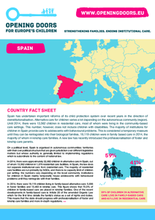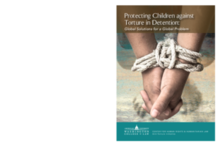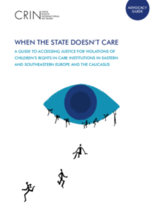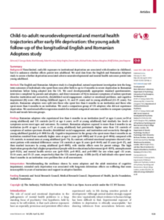Displaying 331 - 340 of 713
A review of the evidence on deinstitutionalisation (DI) and the status of care reforms across Europe in 2016 from the Opening Doors for Europe's Children campaign - a pan-European campaign advocating for strengthening families and ending institutional care.
This country fact sheet highlights the care reforms that Spain has instituted over the past few years. This sheet also provides short facts and the latest developments on children in alternative care in Spain.
This systematic review addresses violence and abuse experiences in institutionalised care, including frequency and type of abuse/violence, interventions addressing violence in institutional care, the perpetrators of violence, and the connections between abuse and cognitive delays in institutionalised children.
The aim of this study is to assess the nutritional and cognitive status in institutionalized orphans which might help to formulate effective interventions for improving the nutritional status of vulnerable children in future.
In this article, Eric Rosenthal examines the implications of the report of the Special Rapporteur on torture and other cruel, inhuman or degrading treatment or punishment, Juan Méndez, focused on children deprived of liberty, on the placement of children in institutions and orphanages.
The aim of this guide is to enable advocates to access the legal and practical tools needed to secure an end to, and compensation for, violations of rights suffered while in institutional care.
In this comment piece that accompanies Child-to-adult neurodevelopmental and mental health trajectories after early life deprivation: the young adult follow-up of the longitudinal English and Romanian Adoptees study, Frank C Verhulst discusses how that study "fills an important knowledge gap on the long-term mental health consequences of early severe childhood deprivation."
This study provides a systematic review of the literature, focusing on the conceptualization and evaluation of continuity.
This study used data from the English and Romanian Adoptees study to assess whether deprivation-associated adverse neurodevelopmental and mental health outcomes persist into young adulthood.
This chapter explores the drivers behind the continued, and in some parts of the world, growing, institutionalization of children.





